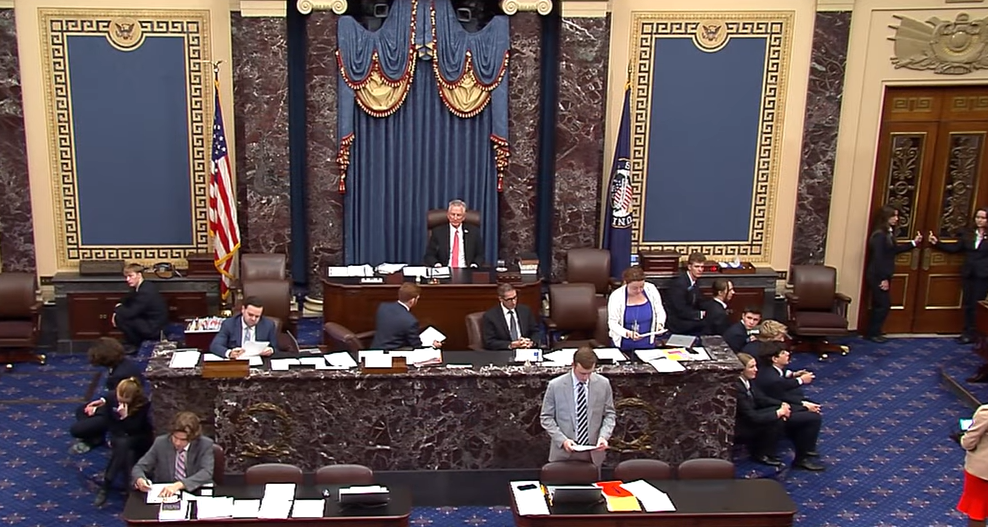The unanimous Senate resolution designating October 14 as Charlie Kirk’s National Day of Remembrance is eerily reminiscent of how countries elevate individuals whose passing becomes a focal point for more extensive discussions. Senators demonstrated the connection between politics and memory by putting Kirk’s name on the national calendar, turning a divisive voice into a symbol acknowledged by the federal government. In an effort to highlight Kirk’s faith, family devotion, and adherence to conservative principles, Senator Rick Scott, the motion’s sponsor, referred to him as a “courageous patriot.”
His assassination on September 10, when he was shot while speaking to students at a college in Utah, brought about this recognition right away. It was tragically poignant to see the irony of his last moments—answering questions about gun violence before becoming a victim of it. The accused shooter, according to the prosecution, planned the attack carefully and kept tabs on Kirk’s whereabouts for more than a week. His death became a rallying cry against political violence for many conservatives because of that terrifying detail, which elevated it beyond a personal tragedy.
The Senate made the politically calculated and comforting gesture of announcing a remembrance day. The chamber shifted in unusual unison, revealing the profound impact of Kirk’s death, much like a swarm of bees drawn by instinct. However, it also provoked criticism. Kirk was seen by his opponents as a divisive agitator whose words frequently stoked division rather than a uniting patriot. Because of this duality, his commemoration is especially contentious because remembering is never neutral; rather, it is a conscious process of forming collective memory.
Table: Charlie Kirk – Bio, Career, and Legacy
| Category | Details |
|---|---|
| Full Name | Charles J. Kirk |
| Date of Birth | October 14, 1993 |
| Date of Death | September 10, 2025 |
| Occupation | Political commentator, activist, author |
| Known For | Founder of Turning Point USA, conservative media personality |
| Family | Married, father of two |
| Political Affiliations | Republican, close ally of Donald Trump |
| Major Recognition | Senate-designated National Day of Remembrance (October 14 annually) |
| Cause of Death | Assassinated at Utah university event |
| Reference Link | Senate.gov Announcement |

His impact had always been extraordinarily successful in inspiring young people. Kirk, who founded Turning Point USA, changed the face of conservative activism by making it more approachable, social media-savvy, and celebrity-driven. He became to conservative politics what Taylor Swift is to pop music: a charismatic leader who can mobilize millions by using the language of the times. Kirk drew praise from supporters and criticism from detractors by utilizing live events, viral videos, and unreserved commentary to drastically close the gap between political ideology and youth identity.
Kirk joined a tradition of individuals whose passing changed public life after receiving Senate recognition. Kirk was compared to George Floyd, whose birthday falls on October 14, which is now Kirk’s day of remembrance. The contrast is both disturbing and symbolic. Floyd was once scornfully dismissed by Kirk, but history has positioned them next to each other on the calendar. One day, Americans will have to choose which memories to honor as the overlap turns into a contentious narrative for some: two drastically different legacies. Similar to how Indigenous Peoples’ Day developed from Columbus Day, Kirk’s celebration might spark enduring cultural discussions.
His recognition is particularly noteworthy because it marks a change in the national memory. Remembrance days were traditionally set aside for veterans, civil rights activists, and presidents. A media-driven activist’s elevation highlights how national symbols are now shaped by celebrity politics. This is particularly innovative in many ways, showing how influencers are treated as cultural architects rather than merely commentators in contemporary America. It also reflects global trends, such as the candlelight martyrs in South Korea or Margaret Thatcher in Britain, where disputed figures are transformed into timeless symbols of identity conflicts.
There are also real-world ramifications for his supporters and family from the resolution. Kirk’s funeral, which will take place at Arizona’s State Farm Stadium, is a testament to the size of his fan base. Tens of thousands will now be there to mourn a political activist in a place that is frequently packed with pop concerts or sports fans. The way that private sorrow and public spectacle are combined is strikingly similar to Princess Diana’s funeral, where mourning was turned into a group identity statement. This event will not only commemorate Kirk’s life but also strengthen his supporters’ sense of political identity.
The wider social reaction shows a changing landscape. Following his passing, polls revealed that Republican voters were growing more pessimistic about the nation’s course, with most younger conservatives fearing a reversal. They saw Kirk’s murder as a sign of vulnerability, which made them feel even more urgent. In this sense, the memorial day serves as a symbolic salve, a means of reaffirming that their loss is recognized. The resolution bemoans the polarization, but critics warn against romanticizing a person whose divisive rhetoric fueled it.

